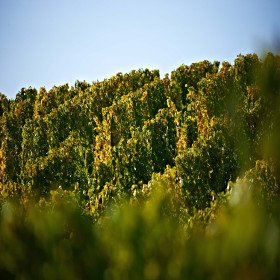Winery family Erbeldinger
"Three things are important to us: it is the cooperation of the generations in the winery, the care of the vineyards and the contact with our customers, for whom we produce excellent wines. Being a winemaker family is a vocation for us, "says Stefan Erbeldinger. The vines stand on fertile loess and clay soils, limestone weathering and marl layers. Despite a wide range of grape varieties, the focus is on Pinot Blanc and Riesling, which also has been documented by many awards over the years. Great attention is also paid to the Erbeldinger sparkling wines, which are presented in an attractive selection and received many awards. Each family member has their own area of responsibility from the vineyard to wine sales. Thus, each of the Erbeldingers makes its contribution to the wine connoisseurs who receive the Erbeldinger wines mostly directly from the winery.
Over the summer, Gundi Harringer's daily changing winery kitchen Erbeldinger'S completes the wine tasting at the winery during the day.
On the estae only German is spoken.






